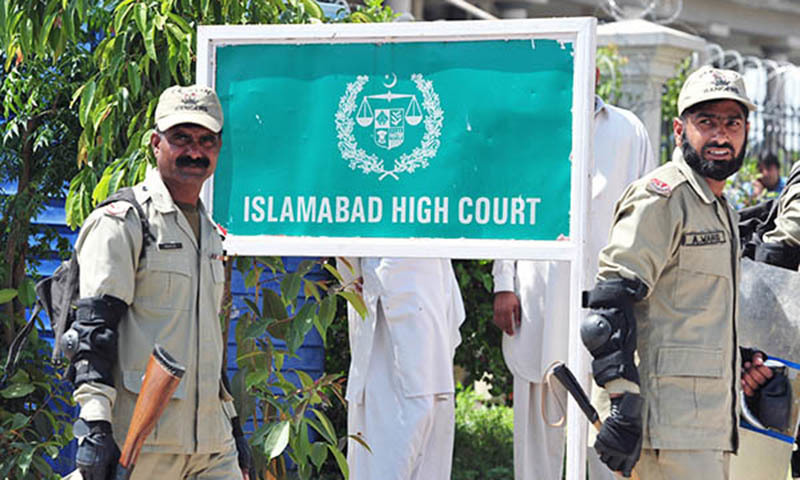ISLAMABAD: The National Assembly Standing Committee on Law and Justice on Friday submitted its report to the lower house on a bill seeking an increase in the number of judges in the Islamabad High Court (IHC).
Submitted by committee chairman Riaz Fatyana, the report recommended that the bill be passed despite the disagreement of the opposition parties.
The Islamabad High Court (Amendment) Bill 2018, which seeks an increase in the number of IHC judges from seven to 10 including a chief justice, had been introduced in the National Assembly by Minister of State for Parliamentary Affairs Ali Mohammad Khan on Dec 21 last year.
When the bill was taken up by the standing committee in its two meetings, opposition members opposed the move, saying that the reason given by the government for increasing the number of judges was “insufficient”.
Established under the IHC Act, 2010, the high court had become functional in Jan 2011.
The bill’s statement of objects and reasons says that “the existing sanctioned strength of the judges of the IHC is six plus one chief justice as per section 3(1) of the aforesaid act.
Opposition members disagree, say govt’s reason for doing so is ‘insufficient’
“As intimated by the IHC, the present strength of judges compared to number of pending cases is not sufficient, besides the institution of fresh cases which is increasing every year. It is, therefore, necessary to increase the strength of the judges of the IHC from seven to 10 judges, including the chief justice to overcome the difficulties of litigant public qua early disposal of long pending cases.”
The report on the bill also contains two ‘notes of dissent’ signed by seven opposition members belonging to PML-N, PPP and the Muttahida Majlis-i-Amal (MMA).
This shows that the 21-member committee has passed the bill with a 12-7 vote.
The opposition members have objected to the reason mentioned in the bill that the present strength of judges compared to number of cases pending is not sufficient.
“If this was the case then there was pendency in other courts as well. In the absence of judges to pending cases ratios compared with other high courts, the rationale could not be justified by the data given,” says one of the dissenting notes.
The opposition members had complained in the committee meetings that the law ministry had provided “inadequate information” to them regarding the pendency of the cases.
They claim that in one of the meetings “it was agreed unanimously that additional information in particular the details of pendency of cases in other courts would be provided in the next meeting for the committee to compare this with courts and hence assess the need in the light of the information provided.”
However, they allege that in the meeting held on Jan 15, “no additional information was provided by the ministry in the absence of which we are unable to make an informed decision.”
“We would also observe here that the failure to provide timely and adequate information by the Ministry of Law and Justice indicates not only their incompetence but also unwillingness to share information. We are concerned about the lack of transparency in this regard,” say the opposition members in their dissenting note.
“It was only in the meeting, on questioning, that we learnt that out of the seven existing positions of judges, only four were filled and three were vacant,” they say.
The committee asked why additional seats were required when there were already three vacant seats and sought details on this matter as well.
The opposition members claim that in the meeting they had recommended that if the number of seats were being increased, IHC being that first court of appeals for the federal government must include judges from the provincial courts by law so as to federalise the constitution of court.
“However, the ministry did not agree on this important recommendation,” the opposition members regret, stating that as “the ministry was unable to give any date to justify its own rational and further was not open to our suggestions to include judges from other provincial benches, we are left with no other option but to oppose the bill.”
PTI has simple majority in the National Assembly but will have to seek the opposition’s support to pass the bill in Senate.
The dissenting note carries the signatures of Syed Naveed Qamar, Dr Nafeesa Shah, Khawaja Saad Rafique, Rana Sanaullah, Usman Ibrahim, Syed Hussain Tariq and Aliya Kamran.

Comments
Post a Comment